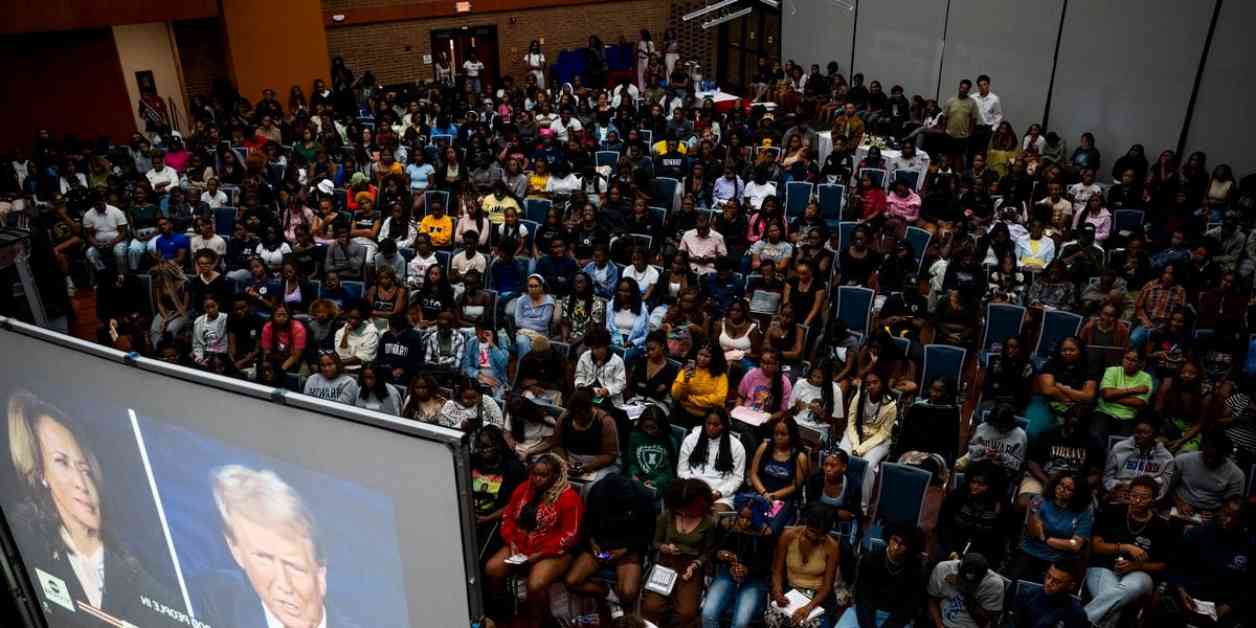A panel of judges recently conducted a hearing to review the case involving the U.S. Commodity Futures Trading Commission (CFTC) and prediction-betting platform Kalshi. The focus of the hearing was on Kalshi’s efforts to launch political prediction markets in the U.S. and whether the company should be allowed to offer these products. The judges did not give any indication of their decision regarding Kalshi’s request while reviewing a lower court’s ruling on the matter.
The hearing, which lasted for about 2.5 hours, saw attorneys for the CFTC and Kalshi presenting their arguments before the judges. CFTC General Counsel Rob Schwartz and Jones Day Partner Yaakov Roth took turns explaining why the appeals court should either block or allow Kalshi to list political prediction markets. The hearing took place shortly after a federal judge ruled that the CFTC could not prevent Kalshi from listing political prediction markets, which enabled the company to offer contracts predicting the outcome of the House and Senate control.
However, the CFTC quickly filed for an emergency stay following the lower court’s ruling, which was granted on a temporary basis by the appeals court. During the hearing, the judges scrutinized the arguments presented by both parties, expressing skepticism about certain points and delving into the specifics of the Commodity Exchange Act. It wasn’t until later in the hearing that they inquired about the nature of event contracts, which are central to the case.
The CFTC argued that allowing Kalshi to list political prediction markets could lead to potential market manipulation, particularly in the context of U.S. elections. Schwartz raised concerns about the difficulty of monitoring and correcting distortions in these markets, emphasizing the opaque and unreliable nature of the information sources involved. He highlighted the risk of manipulation due to factors like undisclosed methodologies in polls, fake news, and inaccurate information.
Schwartz pointed out that while traditional futures contracts rely on objective and reliable indicators, political prediction markets lack such safeguards. He warned that manipulation in these markets could not only harm participants but also undermine the integrity of elections. In response to a hypothetical scenario posed by a judge regarding manipulative bets, Schwartz stressed the importance of preventing such activities in political prediction markets.
Roth, representing Kalshi, countered the CFTC’s arguments by stating that a robust market would be less susceptible to manipulation. He cited the substantial volume of bets on Polymarket, a platform that doesn’t operate in the U.S. following a settlement with the CFTC, as evidence of market resilience. Roth argued that allowing Kalshi to offer these products would enhance regulatory oversight and transparency compared to unregulated overseas platforms.
The CFTC’s claim of potential “irreparable harm” from allowing Kalshi to continue listing event contracts was met with skepticism during the hearing. Legal expert Todd Phillips noted that the regulator struggled to demonstrate the risk of harm convincingly. He suggested that the CFTC could have provided clearer explanations of event contracts and how they relate to the Commodity Exchange Act’s prohibition on gambling.
On the other hand, Kalshi faced tough questioning from the judges regarding its request to offer products that are prohibited in 29 states. The judges raised concerns about the implications of overturning laws in more than half the country to accommodate Kalshi’s offerings. The company’s argument for regulatory compliance and transparency in its markets was scrutinized in light of existing legal restrictions on election betting.
In conclusion, the appeals court hearing involving the CFTC and Kalshi shed light on the complex legal and regulatory issues surrounding political prediction markets in the U.S. The judges’ deliberations will determine the future of these markets and the extent of regulatory oversight needed to prevent potential manipulation and ensure market integrity. As the case continues to unfold, the outcome will have implications for the broader landscape of prediction-betting platforms and their operations in the U.S. and beyond.

















